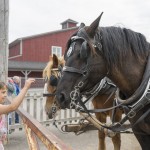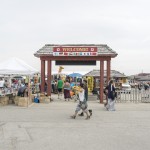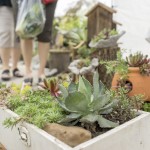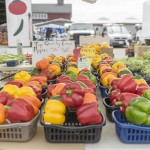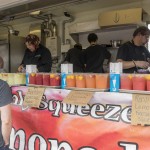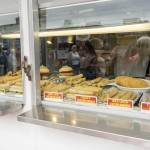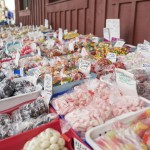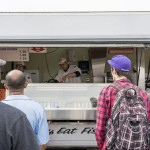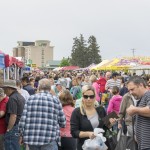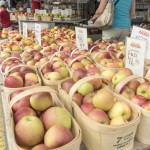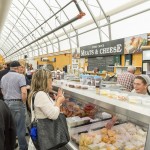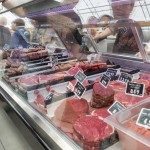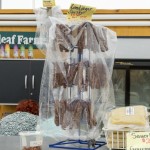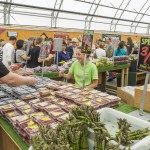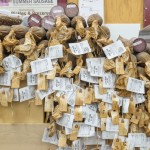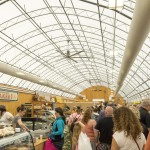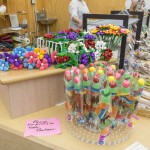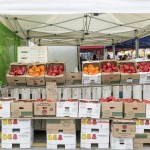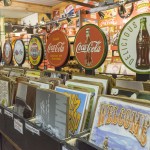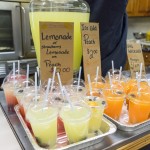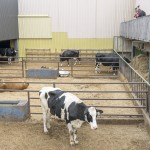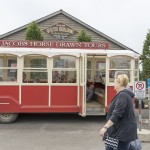Shopping local this summer
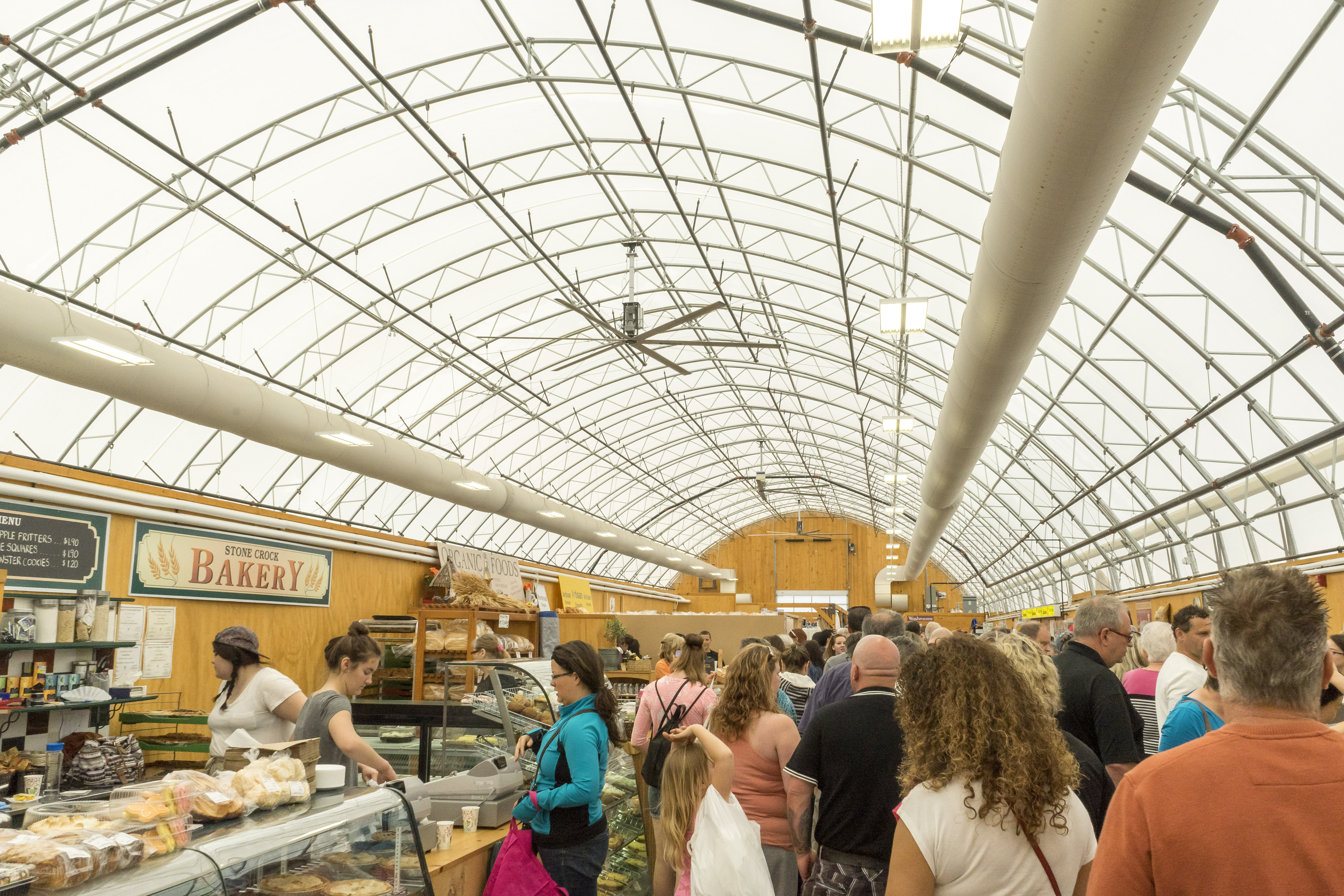
Features Editor Bethany Bowles discusses the benefits of shopping at farmers’ markets
Growing up in the Waterloo region, I was never a stranger to shopping local. I’m from Cambridge, and I remember dragging my mom most Saturdays to the tiny farmers’ market that was just minutes from my house. I loved the social aspect of shopping local and I loved how delicious and fresh everything looked. I loved the colours, the smells, the music from the numerous buskers and the farmers who were overjoyed to sell their products.
In Waterloo, we are extremely lucky to be close to two farmers’ markets. At one end of King Street is the Kitchener Market and at the other is St. Jacobs Farmers’ Market. The Kitchener Market is open Tuesday to Saturday until early afternoon, whereas St. Jacobs Farmers’ Market is only open Thursdays and Saturdays. Both are accessible by bus, which makes shopping local while being a student extremely easy.
The main difference between these two markets is the spectacle. I grew up going to the St. Jacobs Farmers’ Market because it was huge, bright, busy and exciting. It is advertised as a tourist attraction, mainly because of its grand scale. If you’re looking to go shopping for more than an hour, and maybe get lunch while you’re at it, St. Jacobs Farmers’ Market is the best place to go.
St. Jacobs Farmers’ Market sells everything from fresh produce to meat. There are also several food trucks that provide you with a delicious lunch or a quick snack. In the indoor portion of the market, there are stalls that sell coffee, pizza and the best apple fritters you will ever have. There’s live music, homemade crafts and even clothing. It’s definitely one of my favourite places in K-W.
The Kitchener Market is much smaller, and much easier to get in and out of. While St. Jacobs Farmers’ Market isn’t ideal for everyday shopping, the Kitchener Market definitely is. Here you can find fresh produce, meat and delicious baked goods.
Located right in downtown Kitchener, all you have to do is hop on the route 7 bus and you can be right down there to do your shopping.
Although shopping local satisfies your taste buds, there is much more to it that makes it so important.
When you shop at a grocery store, the food is coming from all over. You can sometimes be purchasing produce that has crossed national borders just to meet your plate. When we purchase food traveling so far, we are ultimately polluting the environment with travel emissions, whether it is a huge truck that brought your oranges up from Florida, or a plane bringing your bananas from Ecuador. When shopping at farmers’ markets, the food is not traveling as far to reach your plate, which is more sustainable for the environment.
Another factor that must be kept in mind when shopping at a grocery store is where the money is going. When you purchase a head of lettuce from a grocery store, a fraction of that money is going to the store employees, the store’s head office and the huge companies that farm the produce, such as Dole. When you buy a head of lettuce from a farmers’ market, the money is going straight into the farmer’s pocket, as they were the ones who did all the work to grow a perfect head of lettuce.
Rob Boneschansker, a farmer who sells his produce at St. Jacobs Farmers’ Market, is responsible for bringing cold crops such as cauliflower, cabbage and broccoli to local shoppers from his farm in Wroxeter, Ont.
“I’m here every Thursday and Saturday,” Boneschansker explained. “We come this way because this is where the population is. I do well at this market.”
Boneschansker explained he enjoys selling at St. Jacobs Farmers’ Market. “It’s still that half-country-half-city attitude out here. It’s a nice friendly attitude. People out here are willing to visit and shop.”
Boneschansker went on to explain the importance of shopping from local farms and businesses as a whole.
“Local is a big thing,” he said. “It drives the whole local economy. I’m within 100 kms of here, so whatever is sold here eventually gets back to me at the farm, so to stay within that area keeps things closer to home.”
For Boneschansker, selling local has molded his lifestyle.
“I’ve gradually grown with the business, you see. I started this 20 years ago. It works for me. I get to be my own boss and it seems fun that way.”
While at St. Jacobs Farmers’ Market, two local shoppers from Kitchener, Danica and Sarah, explained they come to St. Jacobs for the produce more so than the spectacle. They grew up going to farmers’ markets and have continued to into early adulthood.
“I wouldn’t look at it as a touristy thing, because I’ve always known it’s been here,” Danica said. “But at the same time it’s nice because you go around and everyone offers you something different.”
Danica and Sarah pointed out they come to St. Jacobs for the fresh produce, but also the famous apple fritters.
As a student, I will admit, it is much easier to go to Zehrs or Walmart than travel all the way to Kitchener or St. Jacobs to get my groceries. As much as Laurier houses a small farmers’ market once a week in the concourse during the school year, the options are limited, and you still have to go to a grocery store to buy your canned goods or meat. Knowing shopping local is an accessible option, however, is something all university students should be aware of.
Ashley Dujlovic is a third-year sociology student at Wilfrid Laurier University who has shopped at farmers’ markets several times during her time at Laurier.
“I was introduced to St. Jacobs and the Kitchener Market when I began school at Laurier a few years ago,” Dujlovic explained. “I like shopping for food and different crafts locally because I enjoy knowing that the money I spend there is going right back into the community.”
Dujlovic really stressed the importance of how shopping local can build your relationship with your surrounding community.
“[Farmers’ markets are] a great place to build community relationships and get out of the Laurier bubble,” she said.
Shopping local may seem tedious, but it is a small way to support the local economy, experience new environments, have fun and be healthier.


